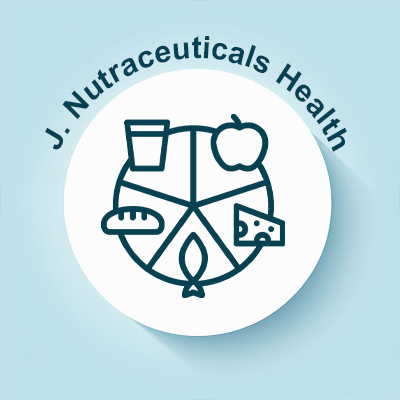
Journal of Nutraceuticals and Health
OPEN ACCESS

OPEN ACCESS
Nutraceuticals, including dietary supplements and functional foods, are increasingly used for health promotion and disease prevention. However, inconsistent definitions and varying regulatory frameworks across countries create challenges in ensuring product safety, efficacy, and transparency. Ethical issues such as misleading health claims, insufficient clinical validation, and regulatory loopholes further complicate consumer protection. This Systematic review examines regulatory systems in the USA, Europe, Australia, Canada, Japan, China, Brazil, Mexico, and India. Using a structured PRISMA-based methodology, peer-reviewed literature and official documents were analyzed to assess regulatory gaps and market practices. Key concerns include inadequate quality control, inconsistent categorization, and lack of post-market surveillance. Findings highlight the need for science-based standards, global harmonization, and stricter oversight. Policy recommendations include uniform classification, mandatory clinical substantiation, and improved product traceability. Addressing these gaps is crucial to safeguard public health, enhance transparency, and build trust among consumers and healthcare professionals in the growing nutraceutical sector.
Nutrivigilance, a new term to define, is a system to monitor adverse effects associated with food and dietary supplements, is critical for safeguarding public health safety. As the dietary supplements (DS) business continues to change globally, continued collaboration and innovation become essential for ensuring consumer safety and maintaining high standards across all regions. Several countries in the world have initiated to create frameworks to tackle the effectiveness and safety of nutritional supplements, determining the importance of scientific evidence, effective postmarket surveillance and harmonizing regulations globally. The major objective is to enhance regulatory oversight, promote safe product use and foster consumer confidence in nutritional products. This paper presents an insight into the Indian legislation governing food items, nutraceuticals and DS presently in place. Also, recent developments at the global level along with potential gaps and their future strategies to prepare a robust system are suggested
Nutrivigilance, a new term to define, is a system to monitor adverse effects associated with food and dietary supplements, is critical for safeguarding public health safety. As the dietary supplements (DS) business continues to change globally, continued collaboration and innovation become essential for ensuring consumer safety and maintaining high standards across all regions. Several countries in the world have initiated to create frameworks to tackle the effectiveness and safety of nutritional supplements, determining the importance of scientific evidence, effective postmarket surveillance and harmonizing regulations globally. The major objective is to enhance regulatory oversight, promote safe product use and foster consumer confidence in nutritional products. This paper presents an insight into the Indian legislation governing food items, nutraceuticals and DS presently in place. Also, recent developments at the global level along with potential gaps and their future strategies to prepare a robust system are suggested
Nutrivigilance, a new term to define, is a system to monitor adverse effects associated with food and dietary supplements, is critical for safeguarding public health safety. As the dietary supplements (DS) business continues to change globally, continued collaboration and innovation become essential for ensuring consumer safety and maintaining high standards across all regions. Several countries in the world have initiated to create frameworks to tackle the effectiveness and safety of nutritional supplements, determining the importance of scientific evidence, effective postmarket surveillance and harmonizing regulations globally. The major objective is to enhance regulatory oversight, promote safe product use and foster consumer confidence in nutritional products. This paper presents an insight into the Indian legislation governing food items, nutraceuticals and DS presently in place. Also, recent developments at the global level along with potential gaps and their future strategies to prepare a robust system are suggested.
